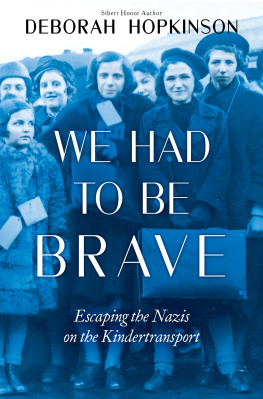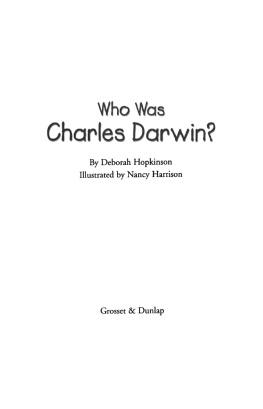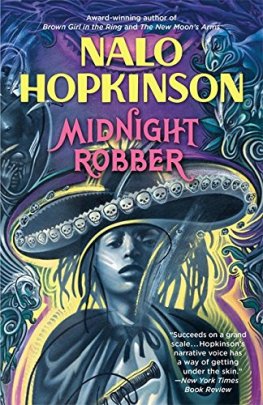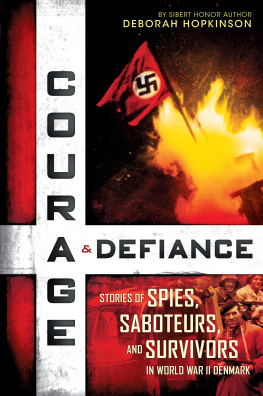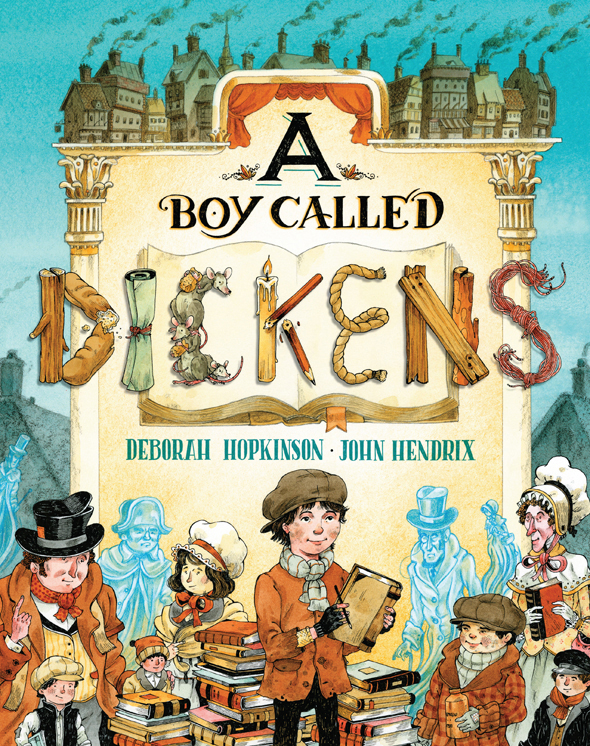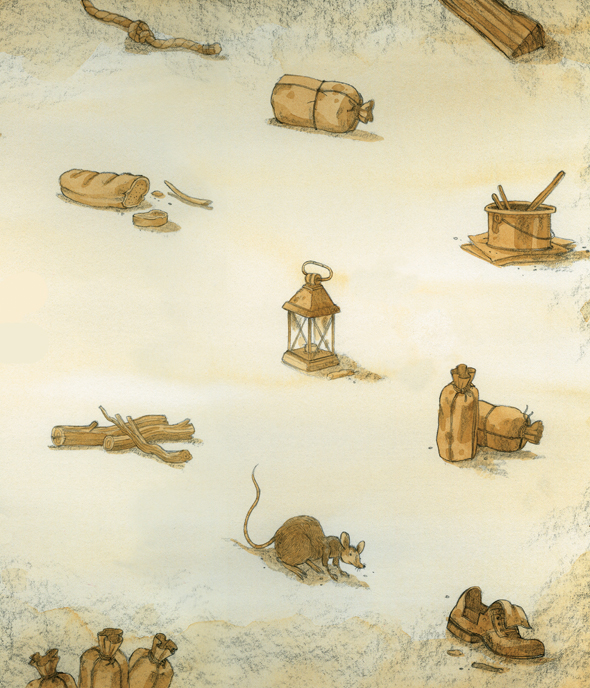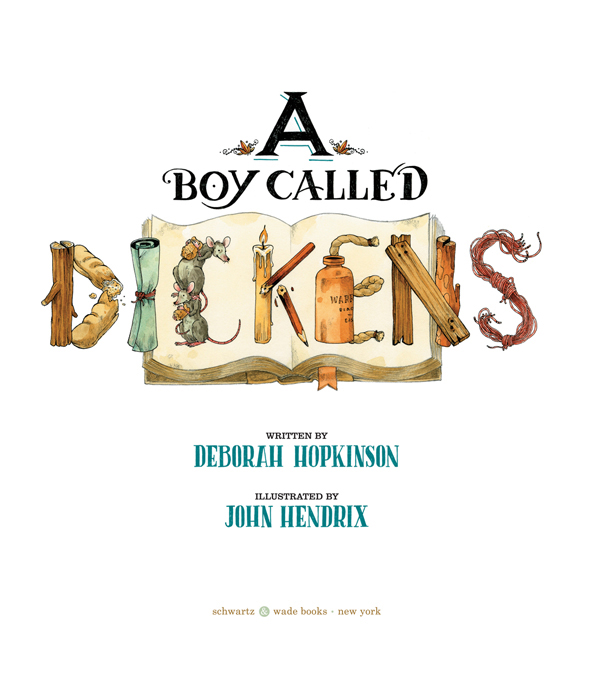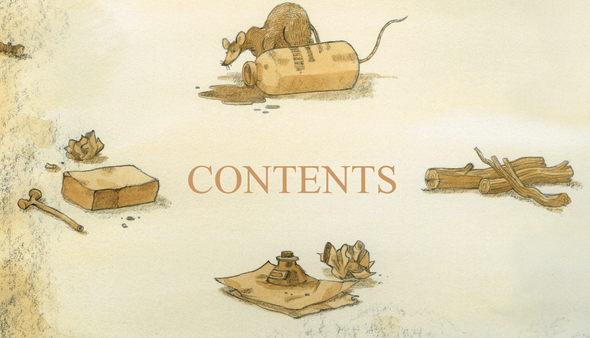Text copyright 2012 by Deborah Hopkinson
Illustrations copyright 2012 by John Hendrix
All rights reserved. Published in the United States by Schwartz & Wade Books,
an imprint of Random House Childrens Books, a division of Random House, Inc., New York.
Schwartz & Wade Books and the colophon are trademarks of Random House, Inc.
Visit us on the Web! randomhouse.com/kids
Educators and librarians, for a variety of teaching tools, visit us at randomhouse.com/teachers
Library of Congress Cataloging-in-Publication Data
Hopkinson, Deborah.
A boy called Dickens / Deborah Hopkinson ; illustrations by John Hendrix.1st ed.
p. cm.
Summary: Narrates the tale of twelve-year-old Charles Dickens who, despite poverty and long hours of factory work,
still has time to discover and share the stories of other residents of 1824 London.
Includes authors note about Dickens life and some of the books he wrote.
eISBN: 978-0-375-98740-3
1. Dickens, Charles, 18121870Juvenile fiction. [1. Dickens, Charles, 18121870Fiction. 2. AuthorsFiction.
3. London (England)History19th centuryFiction. 4. Great BritainHistoryVictoria, 18371901Fiction.]
I. Hendrix, John, ill. II. Title.
PZ7.H778125Boy 2012
[Fic]dc22
2010048531
The illustrations were rendered in graphite, pen-and-ink, and fluid acrylics.
Random House Childrens Books supports the First Amendment and celebrates the right to read.
v3.1
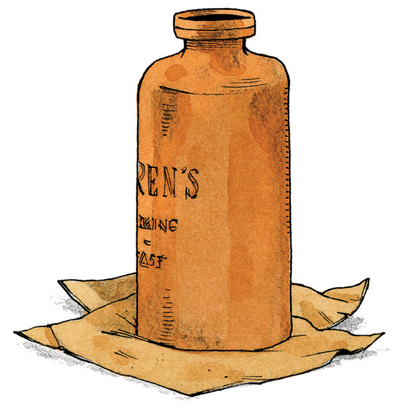
For Anne and Lee, who, like Dickens himself,
have a gift for bringing stories to life. D.H.
For my children, Jack and Annieremember that stories matter. With gratitude to C.S., J.R.R., and J.K.,
my favorite British storytellers. J.H.
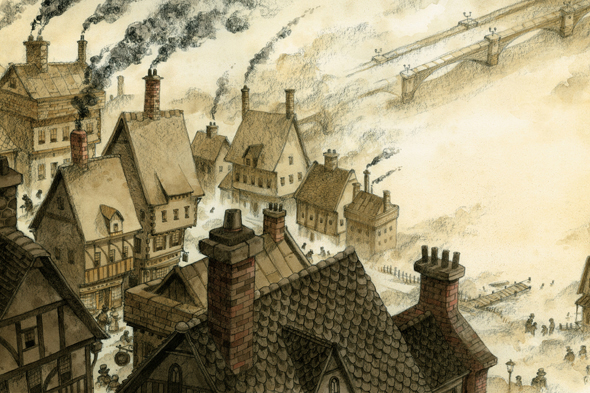
THIS IS OLD LONDON, on a winter morning long ago. Come along, now. We are here to search for a boy called Dickens.
He wont be easy to find. The fog has crept in, silent as a ghost, to fold the city in cold, gray arms.
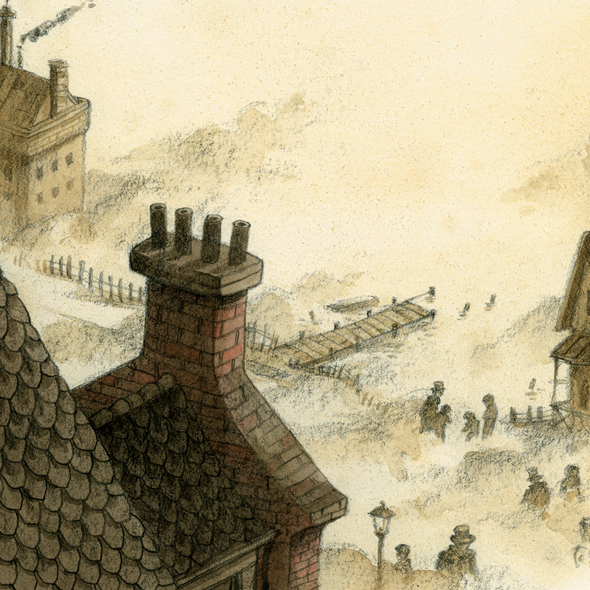
Maybe the boy is down by the riverthe thick, black Thames. There are ragged children here, to be sure, scrambling for bits of copper and wood to sell.
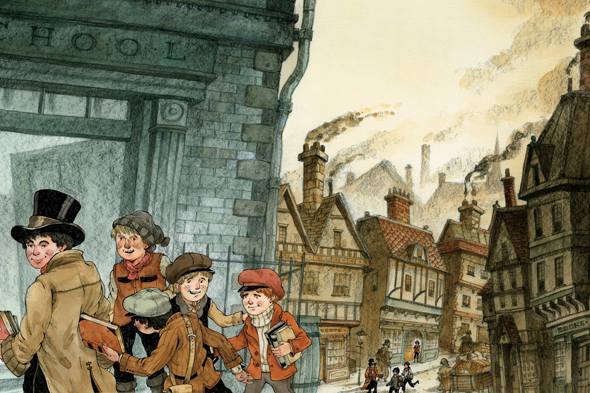
Or maybe hes dashing into that schoolroom along with the other lads, their cheeks pink from the cold and crumbs of hot buns still on their lips.
Oh, look! There he isthat skinny twelve-year-old, huddled in a doorway, wearing a worn, patched jacket.
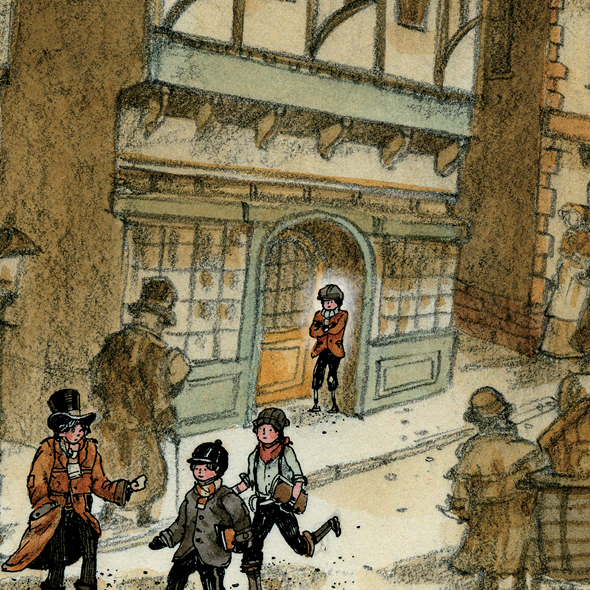
He is watching the schoolboys with hungry eyes. But though hed like something to eat, he longs for their books even more. Almost all of his own books, which he loved so well, were lugged to the pawnshop long ago.
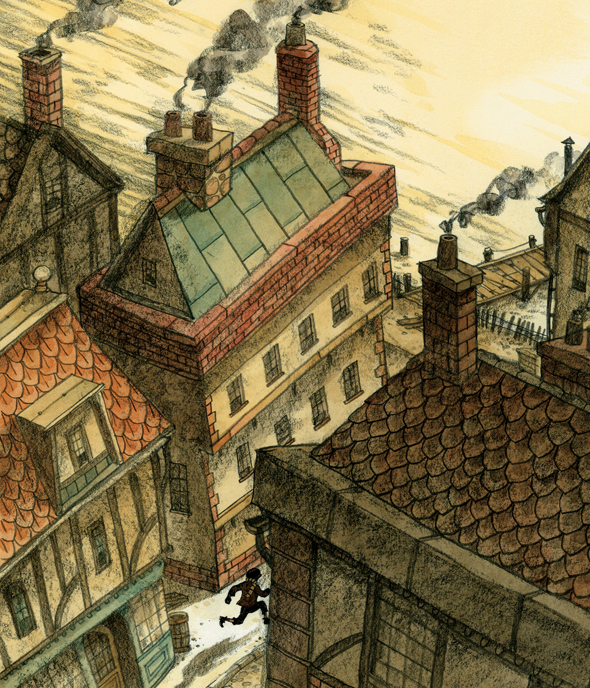
Suddenly Dickens is gone. Hurry! Lets not lose him in the twisting, turning alleys.
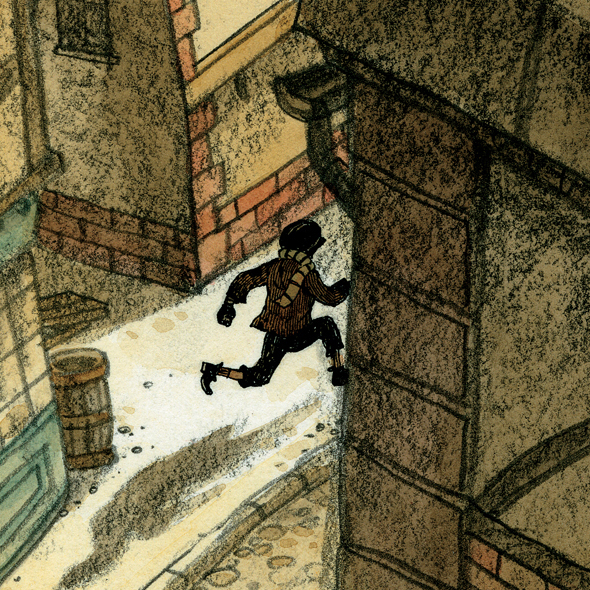
There he is, running to that run-down, rickety house by the river. Are we brave enough to follow him?
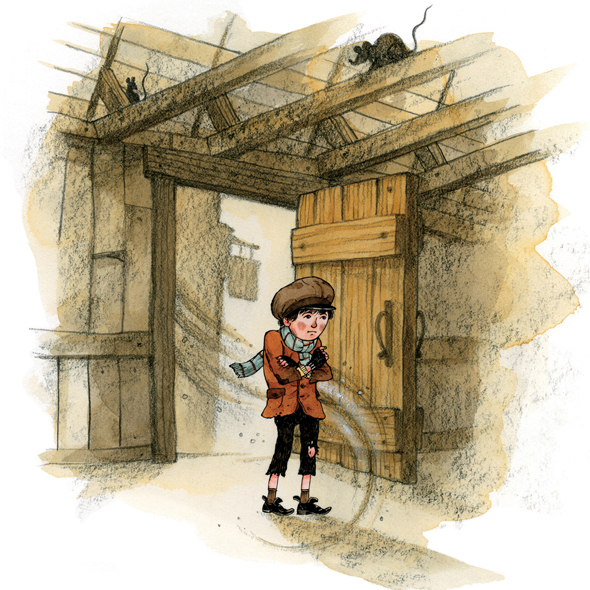
The boy steps inside and coughs in the bitter cold. He tries not to hear the squeaking of the rats that live in the rafters. This is Warrens, a blacking factory, which makes polish for gentlemens boots.
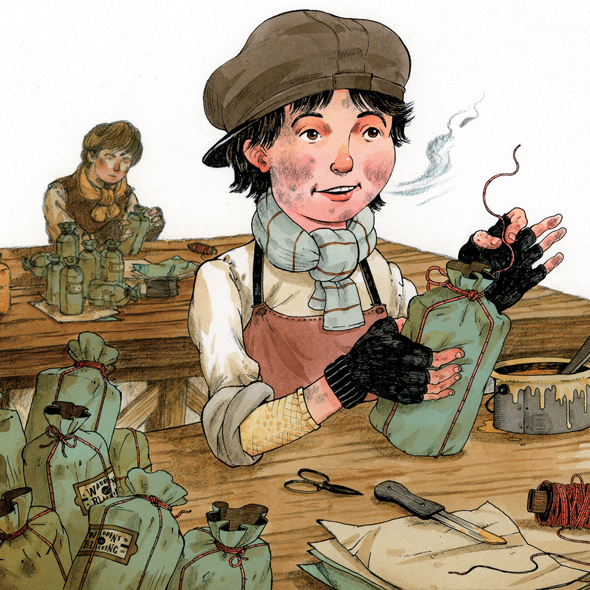
Dickens ties on a ragged apron and climbs onto his stool.
Before him is a table crowded with little pots of polish, sheets of paper, string, scissors, and a paste pot. This is what he does:
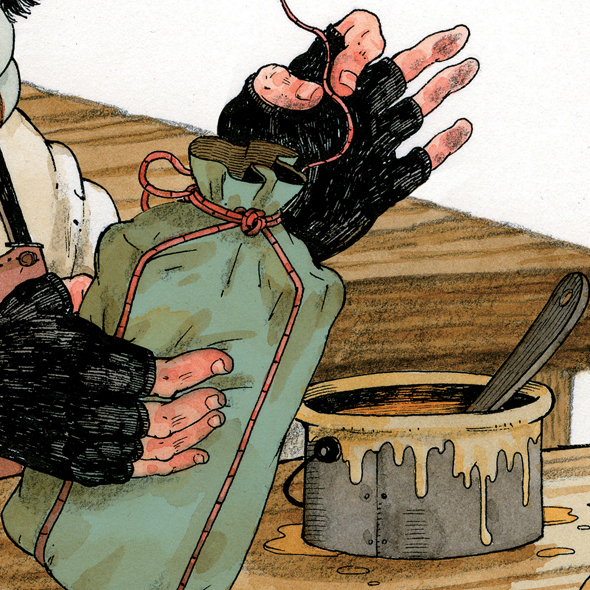
He clips everything close and neat. He dabs paste on the back of a label and sticks it on. Done.
He covers one pot of polish with a piece of oilpaper. He adds a piece of blue paper. He cuts some string to tie the papers snugly around the top.
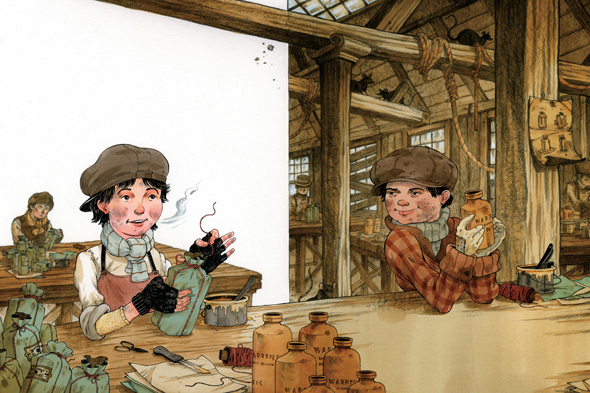
Then he starts all over again with the next, and the next, and the next, and the next.
After a bit, a scruffy lad named Bob Fagin speaks up.
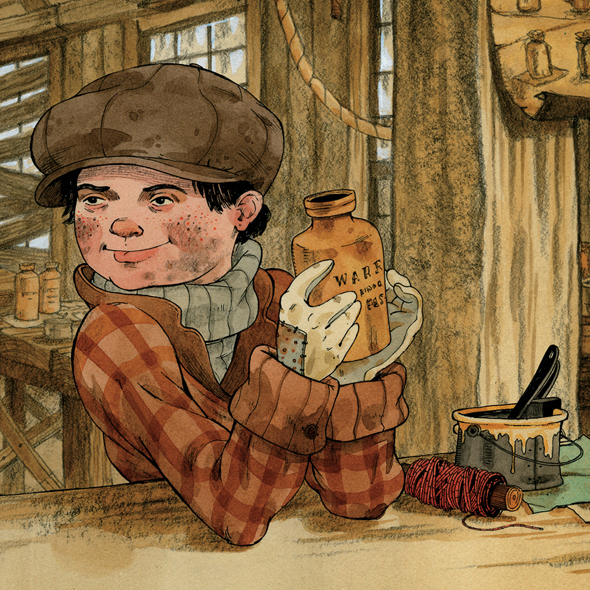
Will you tell a story today, Dickens? I laughed so hard at your tale yesterday, my ribs still hurt.
Dickens shrugs, then says, Well, something odd did happen as I tramped through the fog this morning.
Bob Fagin leans close. Do tell!
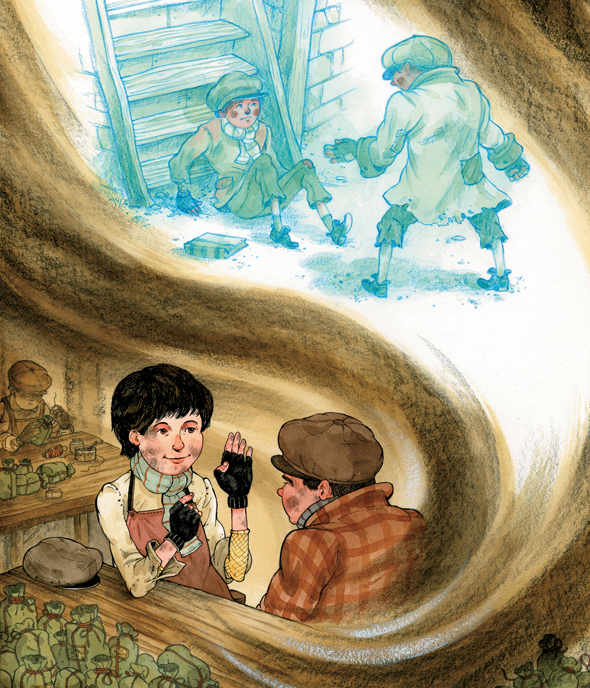
And so Dickens begins: Just as I came down Hungerford Stairs, a boy slammed into me so hard we both fell. He jumped up and looked around wildly.
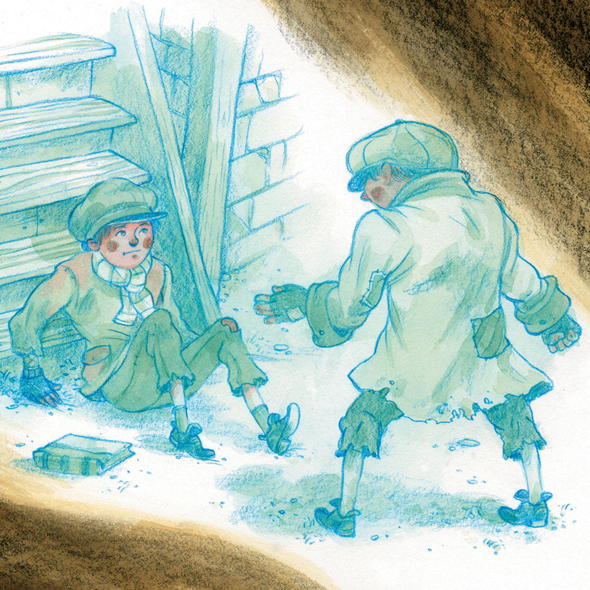
Are you a thief? I asked.
No! he cried. My stepfather put me to work at Murdstones warehouse. But I couldnt bear it another minute. Im running away.
But where could he go? asks Bob Fagin.
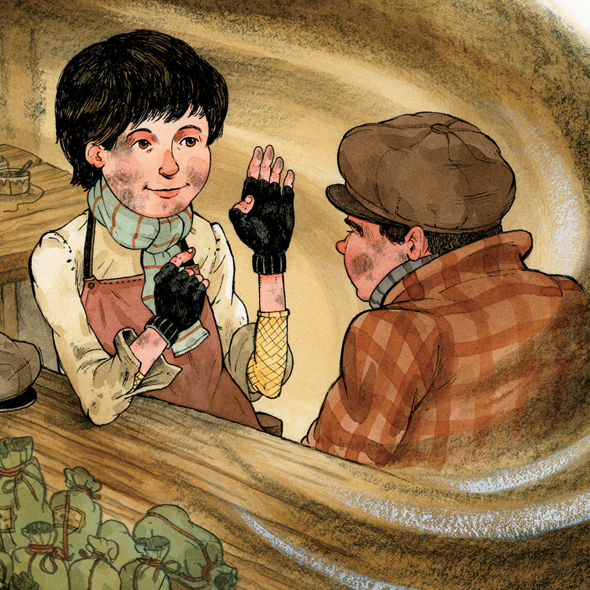
I wondered that very thing, says Dickens, his eyes alight. It seems that the boyhe said his name was Davidwas heading to Dover, near the sea. He hoped to throw himself on the mercy of an aunt hed never set eyes on. Aunt Betsey, he called her.



